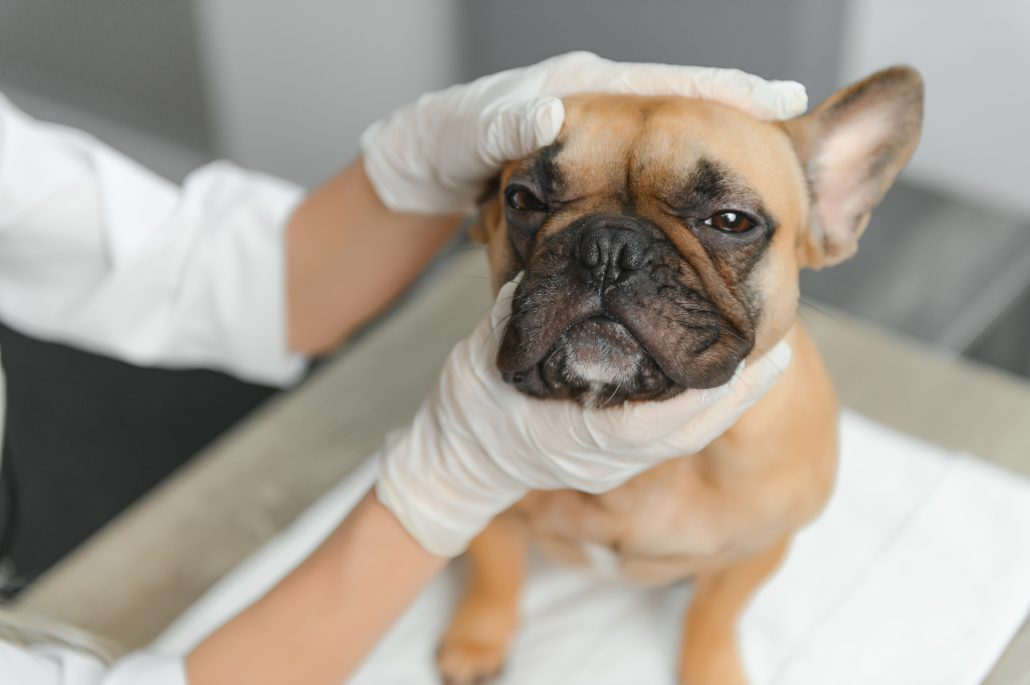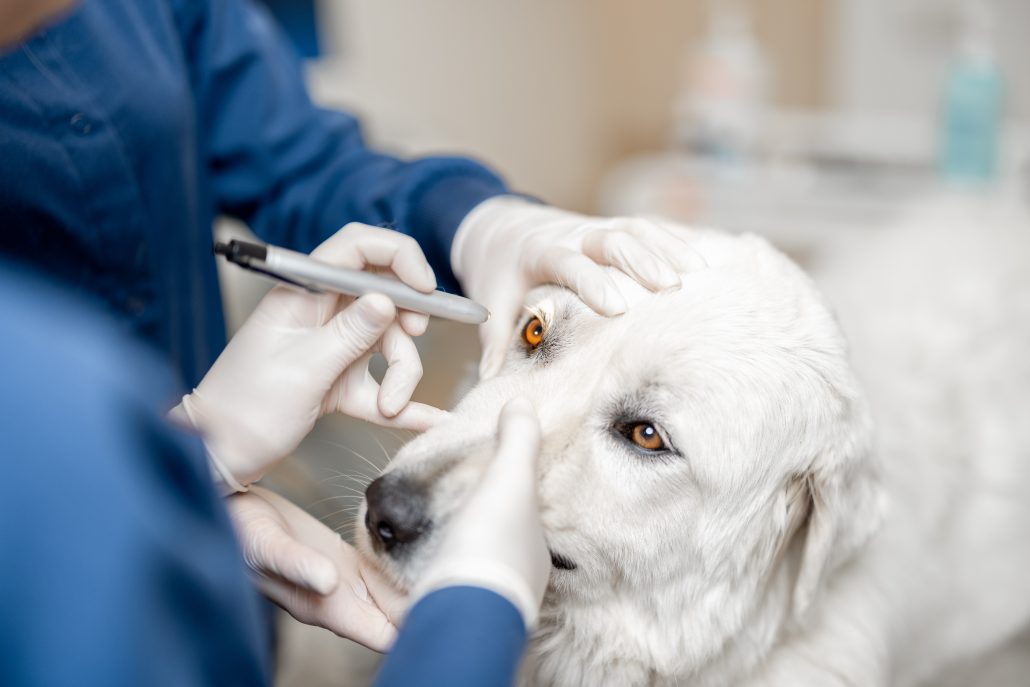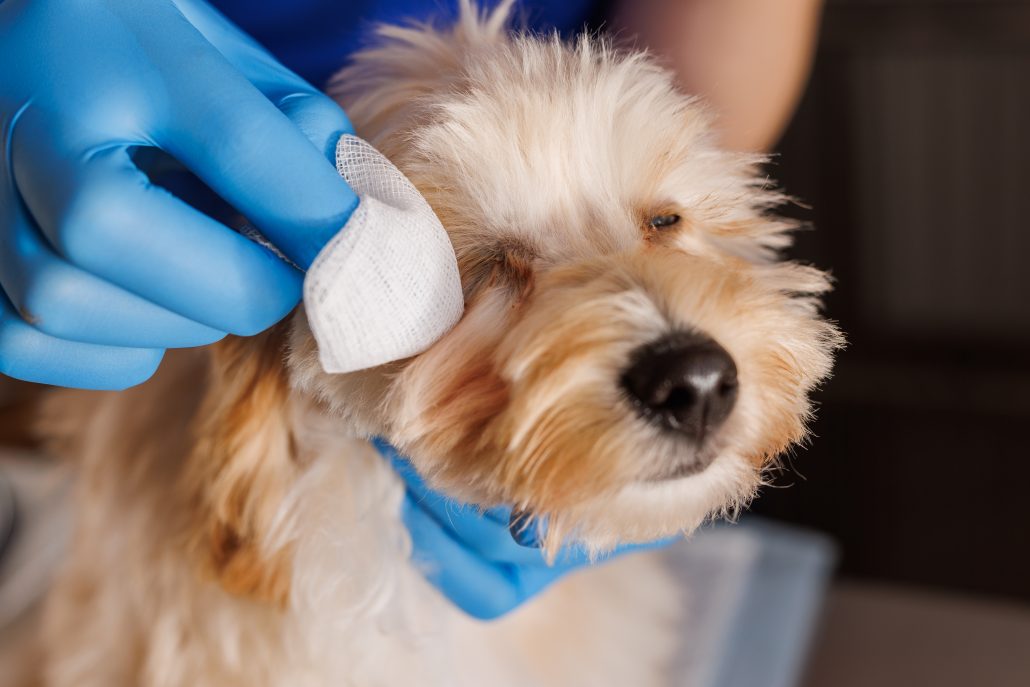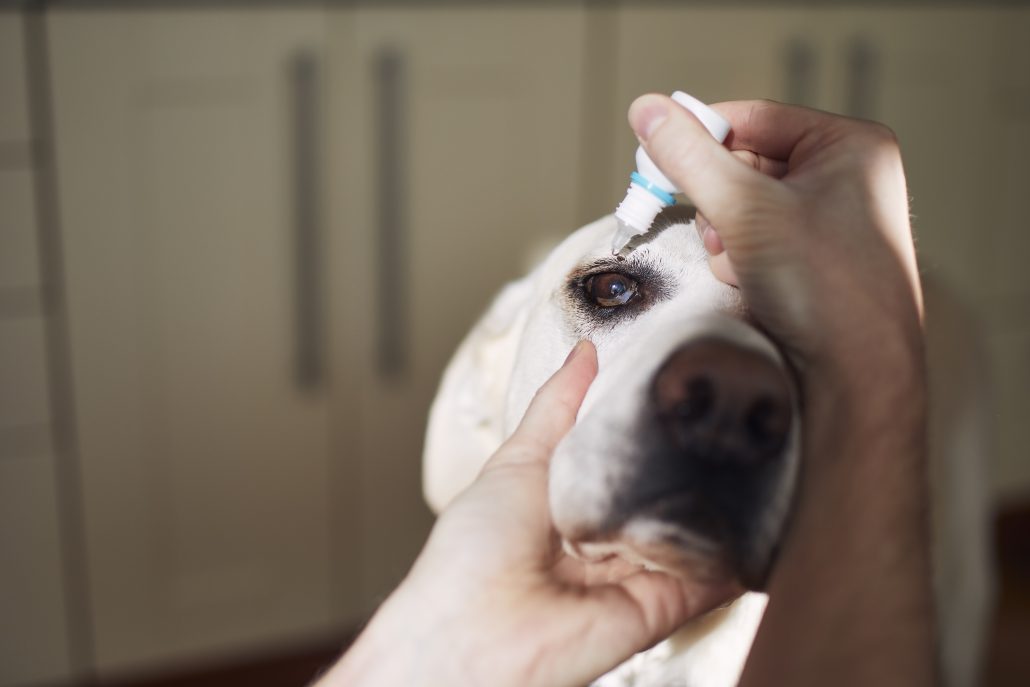
Have you noticed your furry friend’s eyes looking a bit off lately—maybe they’re red, watery, or just not their usual bright and lively selves—you’re not alone.
Eye infections are a common issue for our four-legged pals, and while they can be alarming, understanding them can make all the difference in getting your dog back to their happy, healthy self.
In this guide, we’ll dive into everything you need to know about eye infections in dogs. From what causes eye infections and spotting symptoms to exploring treatment options and prevention tips, we’ve got you covered.
Understanding Eye Infections In Dogs
Eye infections in dogs can be quite distressing, both for your furry friend and for you! They occur when the delicate tissues of the eye become inflamed due to bacteria, viruses, or other irritants. Just as we might experience redness, itching, or discharge when we have an eye infection, our furry friends can suffer from similar symptoms.
Types Of Eye Infections
An eye infection can manifest in several ways, from a red, swollen eye to a discharge that might range from clear to greenish. While these signs can be uncomfortable for your dog, the good news is that they can often be managed with the right care. However, it’s important to note that different types of eye infections require specific treatments.
- Conjunctivitis: Often referred to as “pink eye,” conjunctivitis is the inflammation of the lining that protects the eye and eyelids. It be triggered by bacterial or viral infections, but it’s important to note that conjunctivitis itself is a symptom, not a specific cause. It means that the lining is inflamed and irritated, but pinpointing the exact cause might require further investigation.
- Corneal Inflammation: Inflammation of the cornea, known as keratitis, happens when the clear, protective layer over the eye becomes irritated or infected. This condition can cause your dog’s eye to become red, swollen, and painful, and it often requires treatment to prevent more serious damage.
- Tear Gland Issues: Tear glands play a crucial role in keeping your dog’s eyes moist and free from debris and irritants. Infections or blockages in these glands can cause discomfort and lead to other eye problems.
- Physical Abnormalities of the Eyelid: Sometimes, eye infections can be caused by physical abnormalities of the eyelid, like entropion (when the eyelid rolls inward). These conditions can irritate the eye and lead to infections if not treated.
- Bacterial Eye Infections: These infections are caused by common environmental bacteria and can occur when bacteria enter the eye due to injury or other factors. Treatment is essential to clear up the infection and prevent it from spreading.
- Fungal Eye Infections: Though less common, fungal infections can also affect your dog’s eyes. These infections are usually caused by fungi present in the environment and can lead to irritation and discomfort.
Are Dog Eye Infections Contagious?
Eye infections caused by bacteria or viruses can indeed be contagious. This means that if one dog has an infection, it’s possible for it to be transferred to another dog through direct contact. This could include sharing toys, bedding, or even coming into close contact during playtime.
On the other hand, eye issues caused by allergies or injuries are not contagious. These conditions are typically isolated to the affected dog and aren’t something that can be passed on to other pets or people. So, while your dog’s allergy-related eye irritation or minor injury might be uncomfortable for them, it’s not something you need to worry about spreading to other animals or family members.

What Causes Eye Infections in Dogs?
Eye infections in dogs can be caused by a variety of factors. Some of the most common causes include:
- Abrasions and Scratches: One of the most common causes of eye infections is a scratch or abrasion on the cornea—the clear, outer layer of the eye. This can happen if your pup gets something in their eye, like a speck of sand, or if they accidentally scratch their eye while rubbing it. Even a splash of shampoo during bath time can cause irritation.
- Bacteria and Viruses: Just like people, dogs can pick up bacteria and viruses from their surroundings. If they come into contact with germs from other animals or contaminated spaces, it can lead to an eye infection.
- Allergic Reactions: Dogs can have allergies too! Things like pollen, dust, or mold can make their eyes itchy and inflamed. Identifying what might be causing these allergies and managing those triggers can help keep their eyes healthy.
Sometimes, what looks like an eye infection might actually be a non-infectious issue, such as cataracts, uveitis, or glaucoma. These conditions need different types of treatment, so it’s important to get them checked out by your vet.
Signs & Symptoms Of Eye Infections
If your pup is suffering from an eye infection you may see one or more of the following:
- Redness and inflammation
- Swelling of eye area
- Eye looks closed
- Excessive tears
- Abnormal discharge – yellow or green
- pawing at the eye or rubbing on the ground
- Blinking more frequently

When To Take Your Pooch To The Vet
Sometimes, what seems like a simple eye infection might be a symptom of a more serious underlying condition. In such cases, further investigation by your dog vet is necessary to get to the root of the problem. So, if your pup is showing signs of an eye infection, don’t hesitate to get them checked out.
Early intervention is key. The sooner you get your pup’s eyes checked, the more likely it is that any issues can be treated effectively, preventing potential complications and ensuring your dog returns to their happy, playful self as quickly as possible.
Diagnosing Eye Infections
When you visit the vet, they will perform a thorough examination to determine the cause of your dog’s eye issues. This might include checking the eye for scratches, foreign bodies, or signs of more serious conditions. Your vet might also take a sample of any discharge or perform additional tests to identify any bacterial or viral infections.
Treating Eye Infections In Dogs
Depending on the cause of your pups eye infection, your vet may provide the following treatment options:
- Antibiotics to treat infection.
- Topical treatments, like eye drops.
- Antiviral medications for infections caused by viruses.
- Antifungal medications for infections caused by fungus.
- Antihistamines to relieve symptoms or strategies to minimise exposure to allergens.
- Eye drops to stimulate tear production for dry eyes.
- Gently clear your dog’s eyes of any discharge with a moist towel.
- A warm or cool compress to help relieve itching or pain.
- Use a cone (or Elizabethan collar) to prevent your dog from rubbing or scratching their eye.
Preventing Future Eye Infections
Keeping your dog’s eyes healthy and infection-free is all about taking a few simple steps to protect them from potential issues.
- Use Tearless Shampoo: When it’s bath time, opt for a tearless shampoo and be careful around your dog’s eyes. This will help avoid any irritation or soap getting into their eyes, which can lead to infections.
- Schedule an Allergy and Dermatology Exam: If you think your dog might have allergies, it’s a good idea to get an allergy and dermatology exam from your vet. Pinpointing and managing allergies can make a big difference in preventing eye issues related to allergens.
- Minimise Exposure to Irritants and Allergens: Try to keep your dog’s environment as clean and allergen-free as possible. This means reducing exposure to things like dust, pollen, and other irritants that can cause eye irritation.
- Isolate Sick Pets and Disinfect Often: If one of your pets is dealing with an eye infection, it’s best to keep them separate from the others to prevent spreading any germs. Also, make sure to clean and disinfect their favourite spots and toys to keep everyone safe and healthy.
Read More: Tips For Pet-Proofing Your Home: Creating a Safe Environment for Your Pet

Keeping Those Puppy Eyes Healthy
Eye infections in dogs can be uncomfortable and worrying, but with the right care and attention, you can help keep your furry friend’s eyes healthy and infection-free. By being aware of the signs, understanding the causes, and taking steps to prevent future issues, you’re doing a great job of protecting those precious puppy eyes.
Remember, if you ever notice any signs of an eye infection or just want to ensure your dog’s eyes are in tip-top shape, don’t hesitate to reach out to us! The team at The House Call Vet is here to provide expert care and help your pup stay happy and healthy.
Schedule an appointment today to get personalised advice and treatment for your dog’s eye health.

